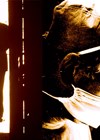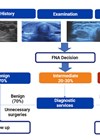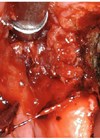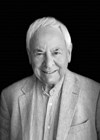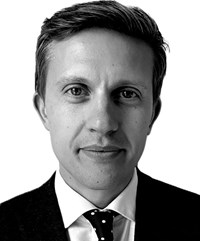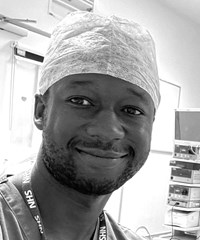ENT features
Challenges in paediatric airway management
Paediatric airway emergencies are high-stakes, but training, simulation and updated guidelines help ENT teams manage risks and build confidence. Congratulations to the ENT Masterclass® on its forthcoming 20th birthday. Over the past two decades, Shahed Quraishi has grown it to...
Underdiagnosing eosinophilic oesophagitis in food bolus obstruction: a wake-up call for ENT units
The management of FBO has evolved, with most cases now done by upper GI clinicians. Biopsies should be taken routinely to investigate possible eosinophilic oesophagitis. In acute soft food bolus obstruction (FBO), uncovering the root cause is as crucial as...
OBITUARY: Randall Payne Morton (1948 - 2025)
Randall Payne Morton. Sadly I report the recent death of Randall Payne Morton, Professor of ORL-HNS in Auckland, New Zealand, on the 11 September 2025, after a long and protracted illness. I first met and worked with Randall during his...
Training reinvented: NHS staff embrace free VR education platform
A groundbreaking VR platform is transforming NHS training, offering immersive, cost-free simulation experiences to boost skills across multiple clinical fields. ENT is a specialty that demands precision, rapid decision-making and familiarity with complex anatomy, especially in emergency contexts such as...
Exploring the role of oral microbiota in head and neck squamous cell carcinoma
Oral microbiota, especially Fusobacterium nucleatum, may improve survival and guide personalised treatment in head and neck squamous cell carcinoma. Head and neck squamous cell carcinoma (HNSCC) is a devastating disease with a low five-year survival rate that has shown little...
Treatment regret in head and neck cancer – trading function for survival
Treatment for H&N cancer can be extremely tough for patients. How do we explain the likely impact as they try to make decisions? And what happens when they regret their choice? Treatment regret is a form of decision regret, involving...
OBITUARY: Throat Cancer Foundation CEO Jamie Rae
The Throat Cancer Foundation announces with deep sorrow the passing of its Chief Executive Officer, Jamie Rae, who passed away peacefully surrounded by his family and loved ones on 5 May 2025. Jamie Rae was not only the founder and...
From surgeon to scholar: the remarkable life of Philip Stell
Professor Philip Stell was an extraordinary man: following an astonishingly illustrious career in ENT, he excelled as a medieval historian. With the Philip Stell Prize due to be awarded in May, his friend Pat Bradley looks back at his remarkable...
Jarrod Homer and Stuart Winter: Development of the sixth edition of the UK multidisciplinary head and neck cancer guidelines
Head and neck cancer care is a complex and constantly evolving field. What’s new and how are national guidelines on the subject produced? We spoke to Professors Homer and Winter, the lead authors of the most recent edition of the...
The challenges in the risk stratification of thyroid nodules and cancers: the role of molecular testing
Around the world, molecular testing is becoming more widely used to personalise the management of thyroid nodules. Thyroid nodules are relatively common. They are palpable in ~5% of the population, while high-resolution ultrasound (US) incidentally finds them in 19–68% of...
The pioneer of precision: Wolfgang Steiner and the evolution of transoral laser surgery
It is rare that a single clinician entirely changes the course of the management of a particular condition. Steiner was one such clinician. Wolfgang Steiner was to transoral laser microsurgery what Grandmaster Flash was to hip-hop or James Brown was...
On the shoulders of giants: a reflection on Wolfgang Steiner
Professor Wolfgang Steiner. Wolfgang Steiner inspired a whole generation of head and neck surgeons. Terry Jones gives us his own personal perspective. “We are like dwarfs on the shoulders of giants, so that we can see more than they, and...









